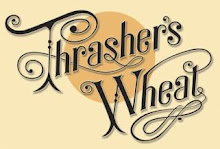Ohio: Why Today's Students Don't Protest the Iraq War

Is this why today's students don't protest the Iraq war?
On Monday, May 4, 1970 at 12:24 PM, twenty-eight Ohio National Guardsmen began shooting into a crowd of student anti-war protesters at Kent State University. In thirteen seconds, the guardsmen had fired sixty-seven rounds and four students lay dead.
Immediately after the Kent State shooting (sometimes referred to as the "Kent State Massacre"), Neil Young composed the song "Ohio" after looking at photos appearing in Life magazine. Crosby, Stills, Nash, and Young went to the studio and recorded the song which was released to radio stations shortly after the killings. Soon, the lyrics "Four dead in Ohio" became an anthem to a generation.
In the liner notes of the Decade album, Neil wrote:
"It's still hard to believe I had to write this song. It's ironic that I capitalized on the death of these American students. Probably the most important lesson ever learned at an American place of learning. David Crosby cried after this take."




The Four Dead in Ohio
Allison Krause - Age: 19, 110 Yards
William Schroeder - Age: 19, 130 Yards
Jeffrey Miller - Age: 20, 90 Yards
Sandra Scheuer - Age: 20, 130 Yards
The four killed and nine wounded were all full-time students.
Over the years, Thrasher's Wheat has received more mail and comments on this song than almost any other Young song. Comments like this from Jodi:
"I just would like to say that I am a 23 old student and I am doing a speech on CSNY during the protest era, mainly the song 'Ohio'. I would have to say that this song has touched me and it has become one of my favorite songs. It is tragic what happened to the students, especially when I read two of those who died were just walking to their next class. This song puts me in a time I was never in and I appreciate the music as well as the students."

Students and National Guard Clash at Kent State, Ohio
The events of May 4, 1970 have been extensively detailed since that day and there still remain many unresolved inconsistencies surrounding the activities of the Guardsmen and students.

"Gotta get down to it
Soldiers are cutting us down
Should have been done long ago."
Jimmy McDonough writes in the Neil Young Biography "Shakey" about the song "Ohio": "In ten lines, Young captured the fear, frustration and anger felt by the youth across the country and set it to a lumbering D-modal death march that hammered home the dread." (Listen to clip of "Ohio"


"Tin Soldiers" & President Nixon
Crosby once said that Young calling Nixon's name out in the lyrics was 'the bravest thing I ever heard.' Crosby noted that at the time, it seemed like those who stood up to Nixon, like those at Kent State, were shot. Neil Young did not seemed scared at all.

When asked about releasing the song "Ohio", Graham Nash responded:
- "Four young men and women had their lives taken from them while lawfully protesting this outrageous government action. We are going back to keep awareness alive in the minds of all students, not only in America, but worldwide…to be vigilant and ready to stand and be counted… and to make sure that the powers of the politicians do not take precedent over the right of lawful protest."
A video collage of still images commemorating the 36th Anniversary of the killing of four college students by National Guardsman at Kent State in 1970
Start and end sequence of a 1 hr documentary special by Germany's WDR TV. Coverage originating from major U.S. networks. TV Teams of NBC, ABC and CBS had been present.
YouTube Video - In 1970, in response to Nixon's widening of the Vietnam War into Cambodia, students throughout the US protested. Nixon sent the National Guard to restore order to the Kent State campus. The resulting consequences changed the course of the war.
Student Video Project of Kent State Massacre May 4, 1970.
"Ohio" music video.

From DownWithTyranny! on why students don't protest today JD said...
Concerning contemporary civil disobedience:
The youth do protest today. In the beginning of the Iraq War, there were some huge protests. My dad marched with me on Washington and told me it reminded him of May Day. In the late nineties, there were some pretty significant anti-globalization protests. There are tons of small - but often effective - protests in the environmental movement, and a huge, annual protest at the School of the Americas. When I was in college, there was a wave of succesful living wage campaigns on college campuses, including mine.
But I would suggest two reasons we don't protest as often - or as big - as our parents: First, I'd imagine we're more cynical than the boomers were.
Second, the mainstream media these days ensures that even the most succesful protests get little air-time. It always vastly underestimates the numbers, and brands the entire event by focusing entirely on the most extremist, least sympathetic factions. In college, I saw this happen in every large-scale protest in which I ever participated. This lack of coverage contributed to the perception that we don't protest, which perhaps ultimately became a self-fulfilling prophesy. Given the futility of our protests, I for one stopped protesting in the old-fashioned way and started blogging.
Maybe we just weren't doing it right, but civil disobedience, like democracy, doesn't work without a functioning press.
Of course, I'd be open to suggestions from the veterans of the civil rights movement and anti-Vietnam movement. But, to no baby boomer in particular, I have to ask, why aren't you on the streets again? Or are you?




































 Concert Review of the Moment
Concert Review of the Moment







![[EFC Blue Ribbon - Free Speech Online]](http://www.thrasherswheat.org/gifs/free-speech.gif)











 Submit Your Neil Links Now!
Submit Your Neil Links Now!






































